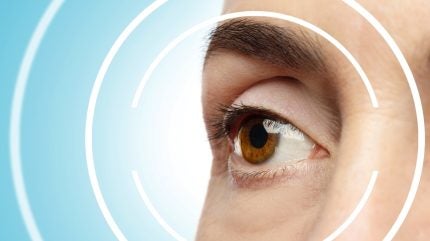
The US Food and Drug Administration (FDA) has qualified the American Academy of Ophthalmology’s patient-reported outcome measure for Assessment of IntraOcular Lens Implant Symptoms (AIOLIS) as a Medical Device Development Tool (MDDT).
This qualification allows medical device sponsors to use AIOLIS to evaluate patients’ perceptions of visual disturbances after intraocular lens (IOL) cataract surgery.

Discover B2B Marketing That Performs
Combine business intelligence and editorial excellence to reach engaged professionals across 36 leading media platforms.
The tool represents a significant step in incorporating patient feedback into clinical evaluations and regulatory decision-making.
AIOLIS is designed to address the lack of patient-focused assessment for symptoms associated with IOLs.
Till now, traditional clinical studies have been primarily relying on safety endpoints based on standard IOLs, but with AIOLIS, researchers now have a tool that emphasises the patient’s experience.
The tool includes questions on 15 common symptoms, overall vision perceptions, and the necessity for additional visual aids after surgery.

US Tariffs are shifting - will you react or anticipate?
Don’t let policy changes catch you off guard. Stay proactive with real-time data and expert analysis.
By GlobalDataTo aid in accurate symptom identification, AIOLIS provides written definitions and photographs for issues such as floaters, glare, blurry vision, and double vision.
The development of AIOLIS was a collaborative effort involving the American Academy of Ophthalmology Academy, UCLA, patient-reported outcomes expert Ron D. Hays, RAND, and four IOL device manufacturers Alcon, Bausch & Lomb, Carl Zeiss Meditec, and Johnson & Johnson.
The tool underwent field testing by 20 cataract surgeons at various sites in the US and two international locations.
AIOLIS development and clinical professor of ophthalmology lead Samuel Masket said: “This uniquely collaborative journey allowed us to recognize the great value in understanding the visual outcomes of premium IOL cataract surgery from patients’ observations and to produce an instrument that reflects those findings.
“At the end of the day, the devices that the manufacturers provide and what clinicians do at surgery must primarily benefit the patient and satisfy their visual needs.”
The MDDT programme by the FDA aims to streamline the development process by providing pre-qualified evaluation tools to medical device sponsors. Currently, there are only two MDDTs in ophthalmology.





